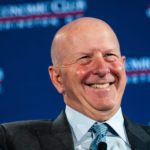Citigroup Inc. has made the strategic decision to exit the distressed-debt trading sector as part of CEO Jane Fraser’s ongoing efforts to reshape the firm and enhance returns. This move comes on the heels of the New York-based bank’s recent departure from municipal bond trading and underwriting, marking another step in Fraser’s comprehensive restructuring plan.
The closure of the distressed-debt business, overseen by Pat Kris and Joseph Beggans, is expected to impact approximately 20 positions, according to sources familiar with the matter who preferred to remain anonymous. A spokesperson for the company declined to comment on the development.
Fraser, who announced the largest restructuring of Citigroup in decades in September, aims to streamline operations and eliminate layers of management within the bank’s extensive workforce of 240,000 employees. With a history of missed targets, Citigroup is actively working to rebuild investor confidence in its ability to set and achieve strategic goals.

Distressed trading, known for its volatility, witnessed a strong performance at Citigroup in 2021, followed by a notable slowdown in the subsequent two years, sources indicate. Other major players in the distressed franchise market include Bank of America Corp. and Goldman Sachs Group Inc., as the field narrows down to a few significant sell-side participants globally.
Citigroup has experienced several senior exits from its distressed-debt business, including the departure of former co-heads Olaf Auerbach and Pete Hall. The decision to withdraw from this sector aligns with Fraser’s strategy of shedding certain franchises, even if competitive, to optimize returns and align with major U.S. peers.
Distressed-debt investors typically seek opportunities among troubled borrowers whose bonds or loans have fallen below 70 cents on the dollar. The market demands in-depth analysis, considering both financials and legal agreements, crucial in determining creditor priorities in potential bankruptcy proceedings.
Citigroup’s restructuring reflects its readiness to divest from specific business segments to adapt to evolving market dynamics and regulatory changes. As the embattled bank undergoes significant transformations, these decisions underscore its commitment to improving financial performance and shareholder value.









